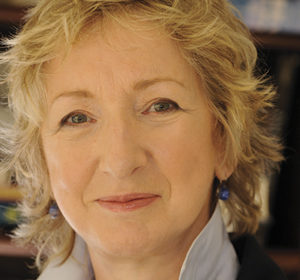“Irish people didn’t get me out of jail. It was English people who got me out of jail.”
– Paul Hill
I don’t remember Bloody Sunday. I don’t remember seeing footage on TV or being shocked by the carnage that left thirteen people dead and a fourteenth who would die later from wounds.
How do I explain this?
The Ireland I grew up in largely ignored the North. It seems strange now, Ireland looks so tiny from an American perspective, that we were so “detached” from a place that was so nearby.
Prior to Bloody Sunday, I’d been to Belfast once – on a shopping trip. I bought a coat that was totally inadequate for the Irish winters. (I was reminded of this every time I walked across Limerick’s Sarsfield Bridge with the wind tearing the pants off me).
What I remember of that trip to Belfast was being slightly afraid as we ate fish & chips, or was it chips and beans, in a restaurant overlooking a street where British soldiers patrolled, but mostly I worried about the trip home.
It was before the IRA started bombing the train lines, so my main concern as we journeyed south was whether the customs men boarding the train at the border would charge duty on my coat.
A couple of months after Bloody Sunday, in July 1972, I left Ireland, as it turned out to be, for good.
I have fond memories of that summer. I worked in Atlantic City and the people I met were mostly students from Ireland, trying to earn enough money for college.
We were young, happy to be away from home and reveling in the sunshine, the beach and the American way. We had money in our pockets for the first time.
What I also remember about that summer was that it was when I came to have an understanding of what it meant to be a Northern Catholic.
The Northerners I met, and there were many there that year, didn’t dwell on what was becoming known as “The Troubles,” but over the summer as friendships flourished, I got to hear firsthand of a brother who was interned; of a nose broken on the way home from school; of a house whose floorboards had been ripped up in the middle of the night by an army looking for guns.
Once or twice, in Feeley’s Irish Pub, when drinks were taken, I was called a “Free Stater.” There was an edge to the gibe. The resentment against what was seen as “my” country’s – The Free State’s – desertion was familial, and as keenly felt as anything the Unionist ruling class had rendered the Northern Catholics.
We, it was said, had turned our backs on our brothers, leaving them to deal with a discriminating, gerrymandering government, and when they fought back we labeled them trouble-makers.
And even as we extradited various “fugitives” from Dublin to the tender mercies of Belfast’s kangaroo courts, we put media censorship in place barring Northern nationalists from speaking on radio or television. We even banned Irish “rebel” songs from the airwaves.
None of this is by way of excusing the horrendous British approach to Northern Ireland. It has been well covered in this magazine, but along the way there have been a few English heroes, including John Stalker, the chief constable who investigated the Northern police “shoot-to-kill” policy, and whose career and personal life were ruined because he refused to be other than a good policeman.
It is something to remember that Paul Hill, a Guildford Four member who spent 15 years in jail for an IRA bombing that he did not commit, said, “Irish people did not get me out of jail. It was English people who got me out of jail.”
One of those “people” is English lawyer Michael Mansfield, who is profiled by Anne Cadwallader in this issue. Mansfield, who has worked on a myriad of Irish cases, including the Guildford Four appeal, is now representing the families of the Bloody Sunday victims.
Another Englishman, David Tereshchuk, writes in this issue on returning to Derry as an eyewitness in the Bloody Sunday Inquiry. As a young TV journalist covering the Civil Rights march on that day, he was there when the British Parachute Regiment opened fire on the marchers.
The pain of remembering, Tereshchuk tells us, is excruciating for the families concerned, but there is the hope that the Inquiry will uncover the truth and thus bring consolation.
Also in this issue, Sarah Buscher talks to Adi Roche whose work on environmental issues and creating a peace and justice program in Ireland’s schools led her to the children of Chernobyl who are suffering the after effects of the nuclear explosion. It is a heartbreaking story, but it is also one of hope.
On a lighter side, there’s Ciaran Carty’s interview with the latest Irishman to take Hollywood by storm, Dubliner Colin Farrell, who will play Jesse James (who it is said came from Co. Antrim) in the upcoming American Outlaws.
Seth Linder interviews Susan Lynch, the star of the Scottish thriller Beautiful Creatures. Mollie Maass writes about what it is like for an American couple to get married in Ireland. And Irish writer Maeve Binchy has a look back on her life and career.
All in all there is lots of great reading. Happy summer! ♦


Leave a Reply